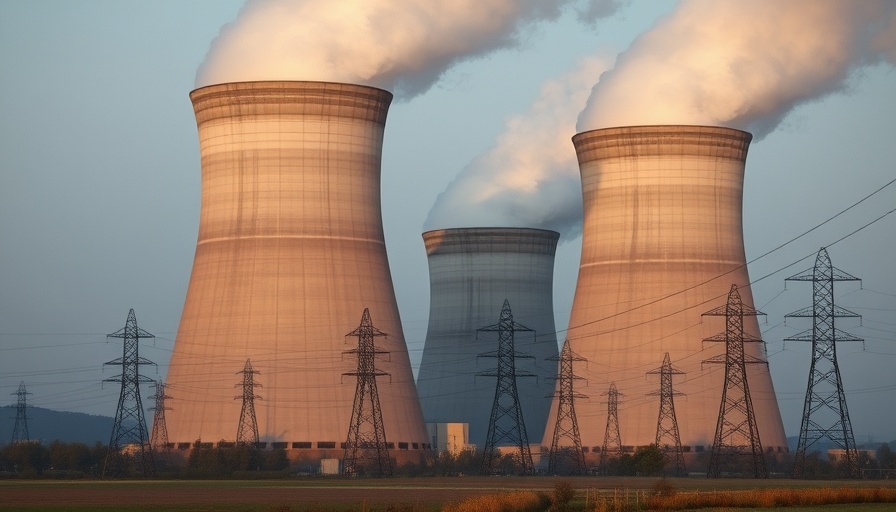
The Crucial Role of Eskom in South Africa's Economy
South Africa's economic growth is intricately linked to the performance of its state-owned utility, Eskom, which supplies approximately 90% of the nation’s electricity. Recent challenges, including aging infrastructure and financial sustainability, have raised concerns about the stability of this essential service. As highlighted in a recent OECD report, load shedding has been a persistent issue since 2007, significantly hampering business productivity and investment in the country.
The Economic Consequences of Load Shedding
Load shedding has imposed a staggering cost on the economy, with recent estimates suggesting a cumulative financial impact of around $2.41 billion between 2007 and 2019. Interruptions to the power supply not only affect large businesses but also have dire repercussions for smaller firms that struggle to compete in the current market environment. According to forecasts, as more power stations are expected to close in the forthcoming years, the correlation between unsteady electricity supply and economic downturn becomes even more evident.
Addressing the Challenges Ahead
The outlook presented by the IMF indicates a potential increase in South Africa’s GDP, from $410.34 billion to $490.01 billion by 2030. However, achieving this growth trajectory without resolving the issues of load shedding could prove challenging. Efforts to diversify energy sources and improve infrastructure resilience are critical not just for Eskom but for stimulating broader economic activity, particularly in trade, commerce, and e-commerce sectors.
Implications for Exporters and E-commerce Businesses
For exporters, importers, and e-commerce businesses operating in South Africa, the stability of energy supply directly impacts operational efficiency and costs. As the African Continental Free Trade Area (AfCFTA) aims to facilitate increased cross-border trade, ensuring a reliable energy supply will be essential to harnessing the benefits of this digital economy. Navigating the complexities of the energy landscape becomes crucial for these stakeholders as they adapt to changes and work towards sustaining growth in a challenging environment.
To bolster your understanding of how these energy issues can impact trade and commerce, consider exploring innovative solutions and strategies for your business operations.
 Add Row
Add Row  Add
Add 




Write A Comment